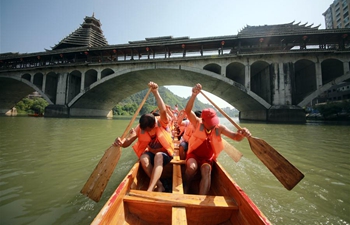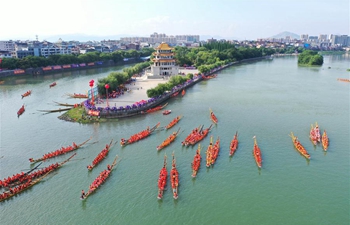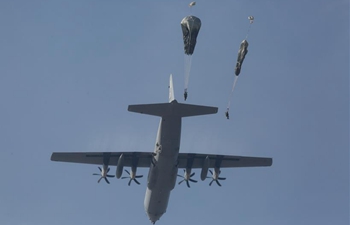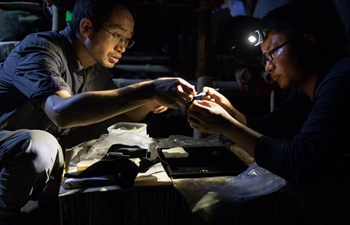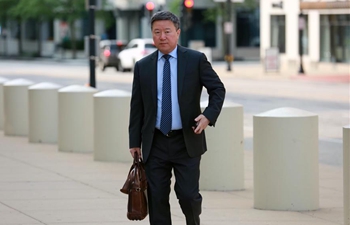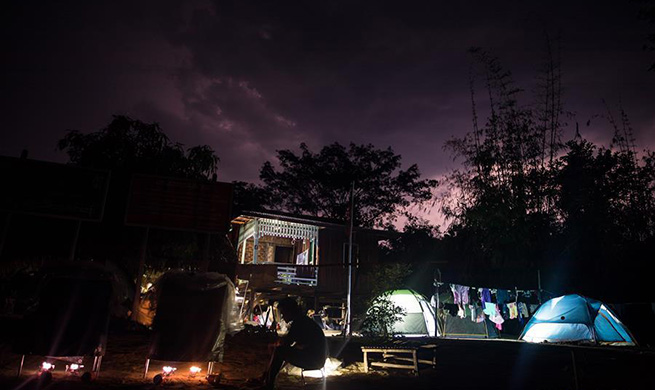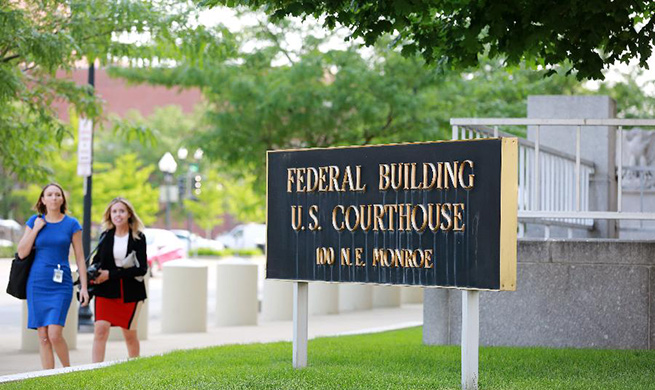SEOUL, June 4 (Xinhua) -- South Korean Unification Minister Kim Yeon-chul said Tuesday that his country was making best efforts to resume negotiations between the Democratic People's Republic of Korea (DPRK) and the United States on denuclearization of the Korean Peninsula.
Kim made the remarks during a press conference with foreign correspondents in Seoul, saying the government was exerting its utmost efforts to "set conditions" for the resumption of the DPRK-U.S. dialogue through the improved inter-Korean relations. He did not elaborate what the conditions would be.
The negotiation to completely denuclearize the Korean Peninsula has been stalled since the second summit between top DPRK leader Kim Jong Un and U.S. President Donald Trump ended without any agreement in late February in the Vietnamese capital of Hanoi.
"What's the most important at this point is the resumption of the DPRK-U.S. negotiations as early as possible," said the top South Korean policymaker in charge of inter-Korean relations.
Despite the no-agreement summit in Hanoi, Pyongyang and Washington confirmed different views on major issues and what each other demanded, said Kim who noted that the confirmation was a fruit borne in the Hanoi summit.
Kim said Seoul has been making efforts to take a dialogue opportunity with Pyongyang, noting that various opinions have been recently presented for the resumed DPRK-U.S. negotiations.
In his policy speech marking the First Session of the 14th Supreme People's Assembly (SPA) in mid-April, the DPRK leader said he could think of one more round of summit with the U.S. president if the United States adopts a correct posture and comes to the third DPRK-U.S. summit "with a certain methodology that can be shared with us."
The South Korean minister said a consensus of the comprehensive agreement with its phased implementations has been developed, from a broader perspective, in the denuclearization negotiations.
"What's the most important in the negotiations is trust, rather than technical issues," said Kim, calling for Pyongyang and Washington to try to find what each side should do to recover the weakened trust following the Hanoi summit.
He stressed that it would be significant for leaders of South Korea, the DPRK and the United States to have agreed to the complete denuclearization of the peninsula during their respective inter-Korean and DPRK-U.S. summits.
Regarding the fourth summit between the leaders of the two Koreas, Kim said it was currently possible for the two leaders to hold such a summit as their second one in May last year at the inter-Korean border village of Panmunjom.
South Korean President Moon Jae-in held a one-day, surprising meeting with the DPRK leader without any advance notice on May 26 last year in the DPRK side of Panmunjom.
The first and third Moon-Kim summits were held last April in Panmunjom and last September in Pyongyang each with adjustments and preparations, but the second one was abruptly held to help start talks for the first DPRK-U.S. summit, which had been stalled briefly, the unification minister noted.
The minister stressed that the peninsula's denuclearization was one of the most important issues among all relevant parties in Northeast Asia, saying the relevant countries should cooperate in resolving the issue.
He noted that the normalized relations between the DPRK and Japan were also significant, saying the South Korean government has maintained a position of supporting and cooperating in the issue if necessary.
"The peace of the Korean Peninsula will be a foundation for peace in Northeast Asia, and the inter-Korean economic cooperation will contribute to the integration and prosperity of the Northeast Asia," the minister noted.
